Programs & Curriculums
Infant
Welcome to our Family First Childcare
Infants classroom. We are very excited to have you and your infant in our class we are looking forward to the following year. The following packet contains the guidelines and procedures of the infant room. If we have forgotten something or you have any questions or concerns, please feel free to speak with any one of the teachers in the class.
Open-door Policy:
Our babies’ parents are always welcome in our classroom. Please feel free to stop in or call to check on your infant.What to bring:
We recommend keeping at least two full changes of clothing (including shirt, pants, onesie, socks, etc.) at the center. Parents may also want to leave an extra pacifier, a hat. Diapers, wipes, and bottles are also to be brought from home, and you may want to bring a blanket (long enough to tuck edges around the mattress) and a soft toy for your baby to sleep with. Blankets are to be taken home every Friday to be washed. Everything brought from home must be labeled with the child’s name. Sheets, bibs, burp cloths, mobiles, and crib toys are provided by the Helpful Hands Children Center.
Daily Sheets:
Each child will go home with a sheet detailing his or her day. This includes times of naps, time and types of diaper changes, food eaten, and times and amounts of bottles taken. On this sheet, parents will also find notes about needed supplies.Diapers:Babies’
diapers are changed at least as often as two hours, but more often if needed. Babies are wiped at every diaper change. Ointments are generally applied as needed, unless otherwise requested by the parent.
Naps:
Growing babies require a lot of sleep! Infants fall asleep in a lot of different ways. Please let us know what works best for your baby. Naps, in the Infant room, are not strictly scheduled. Bottles and Food:
All bottles and sippy cups must be labeled with the child’s name. As regulated by ODJFS, bottles may contain only formula, breast milk, milk, or water.
Childcare Center follows the Federal Nutrition Program and will supply high iron formula, high iron cereal, meat, fruit, vegetable baby food, and infant appropriate snacks. Bottles must be prepared at home, and formula must be premixed. You also may choose to use your own baby food. The time at which bottles are given is coordinated with the parents’ wishes and the needs of the infant, but most babies eat every 2 – 4 hours. All bottles are warmed in a crock pot and the temperature is tested before serving. Warmed breast milk may be kept for 1 hour, and formula for 2 hours. Breast feeding mothers are welcome to nurse their children at the center. When your child is ready to eat baby food and you choose to bring baby food and/or cereal from home, the containers must be sealed and labeled when they arrive at the center. Open jars of baby food will be dated, and can be kept for 24 hours. Baby food is warmed in the microwave, and the temperature is tested before serving. When a child is ready for solid food, it will be provided by the center.Meals:
Breakfast is served at 8:00, lunch is served at 12:00, and afternoon snack is served at 3:00 dinner at 5:30 pm and evening snack at 8:00.
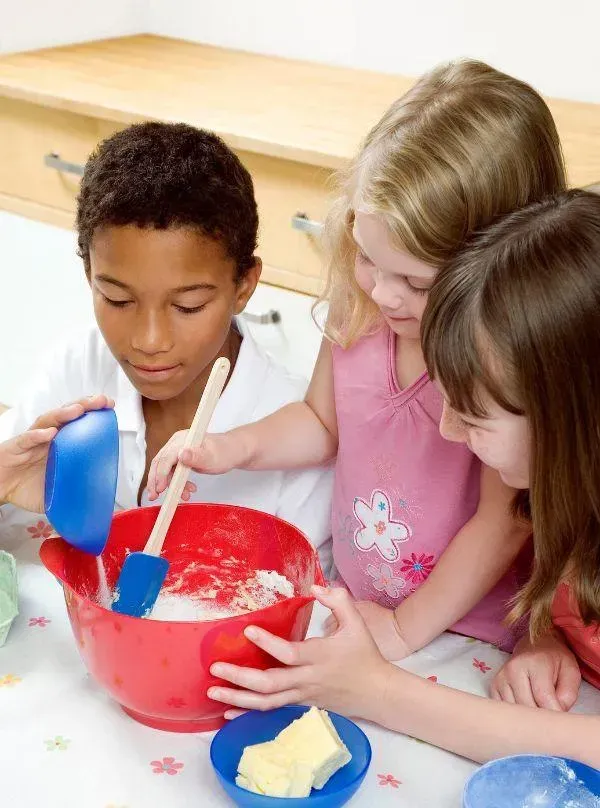
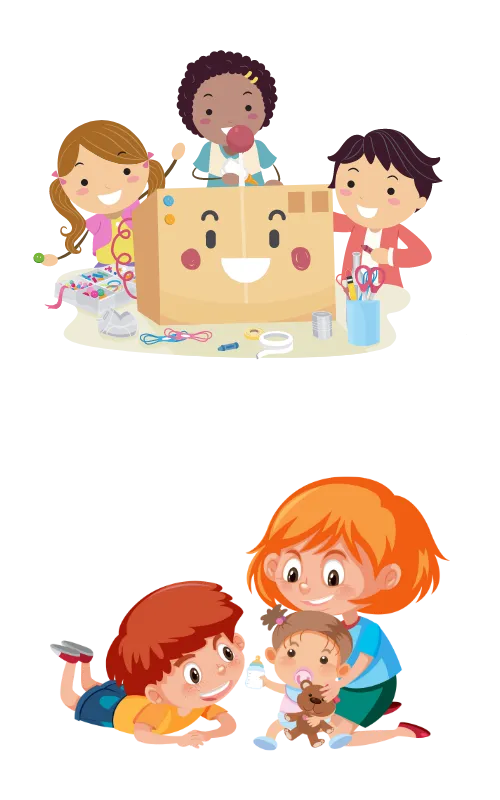
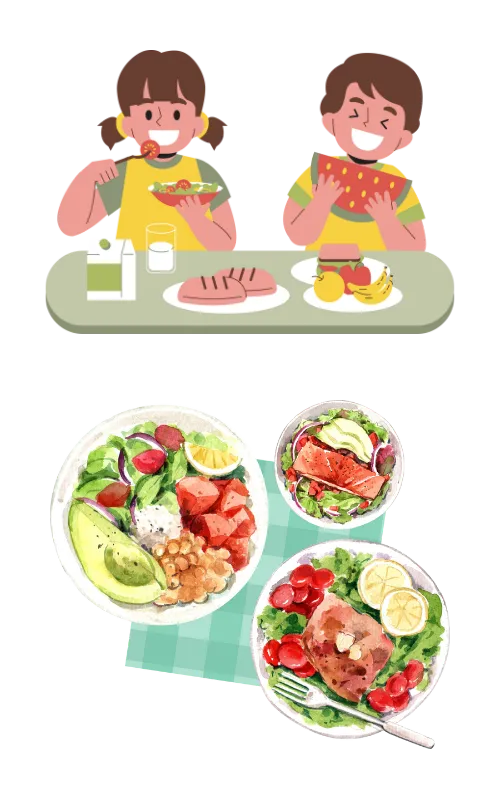
Toddler Program
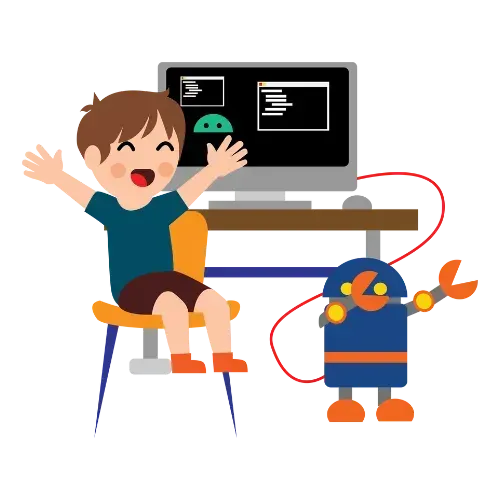
The capacity for our toddler room is 2 teachers and 14 children.
We believe this allows more time for nurturing one-on-one relationships between teacher and child. The schedule is designed to meet each child's needs as well as the needs of the group. Nap time, meal times, and diapering times are fixed. Free-play, indoor/outdoor activities, and transition times are flexible. The classroom teacher team changes the equipment in the classrooms every three to four weeks, to provide the children with a variety of age appropriate toys and equipment pieces to engage with during child-initiated playtime. All teacher- initiated activities are optional, but children are encouraged to participate and experiment with new activities. Our Teachers use a number of strategies and activities to encourage growth and development, including: playful interactions, songs, stories, positive reinforcement, direction, redirection, and modeling of appropriate behavior. The program focuses on a variety of age appropriate goals and skills including: self-help, independence, peer interaction, self-control, positive problem solving, age appropriate health and safety habits, and using emerging language to communicate needs and feelings and express emotions in a healthy way. Parents/caregivers fill out a portion of a daily report form when their child arrives to the center. Teachers then complete the rest of the form describing the child's activities for the day. This includes what the child has eaten, their sleeping times and quality of that sleep, mood and behavior, and their diapering information. The purpose of these forms is to assure continuous communication between parents/caregivers and the staff.
Preschools
Intown Childcare Center preschool schedule and curriculum is designed to add more structure, decreasing flexibility and minimizing transitions. Our daily routine consists of teacher- initiated activities, large group times, quiet reading, large motor, meals, nap, and clean up. The classroom teacher team changes the equipment in the classroom every three to four weeks to provide children with a variety of age-appropriate toys and equipment to engage with during child-initiated playtime. Large group activities increase the child's attention span and listening skills while developing confidence in a group setting by enhancing social and emotional skills. Curriculum is developed on a weekly basis, focusing on a variety of subjects. Preschool teachers use a number of strategies and activities to encourage growth and development, including: playful interactions, songs, stories, positive reinforcement, direction, redirection, and modeling of appropriate behavior. The younger preschool program focuses on expanding social skills; independence, problem-solving skills, health and safety habits, and a strong emphasis on helping children recognize and verbalize emotions. Teachers also use an anti- violence curriculum, Second Step, in the Younger Preschool Room. The older preschool schedule and curriculum are designed to assist in preparing children for kindergarten. The program continues to build off of our younger preschool goals of adding more structure, decreasing flexibility, and minimizing transitions. The daily routine consists of teacher-initiated activities, large group times, reading, writing, science, math, large motor, meals, rest, clean up, and child-initiated activities and play. The classroom teacher team changes the equipment in the classroom every three to four weeks to provide children with a variety of age-appropriate toys and equipment to engage with during child-initiated playtime. Large group activities increase the child's attention span and listening skills while developing confidence in a group setting by enhancing social and emotional skills. Curriculum is developed on a weekly basis focusing on a variety of subjects. Preschool teachers use a number of strategies and activities to encourage growth and development, including: playful interactions, songs, stories, positive reinforcement, direction, redirection, and modeling of appropriate behavior. The older preschool program focuses on school readiness which includes: expanding social skills and positive interactions with peers, problem-solving skills, being able to pay attention and follow directions, finishing tasks and working independently, health and safety habits, and a strong emphasis on helping children recognize, verbalize, and control emotions. Along with the Younger Preschool Room Second Step anti-violence curriculum, the Older Preschool Room uses the literacy
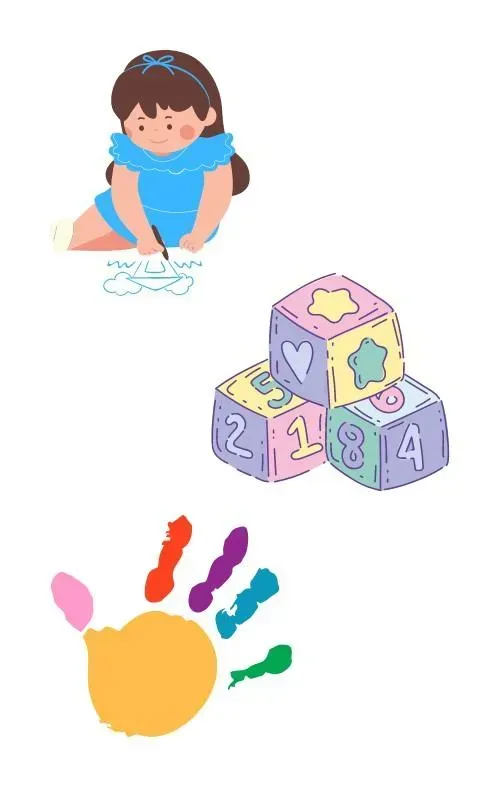
School Agers

Here atIntown Childcare Center we realize there many benefits a child can receive from a quality School Agers program. Our goal is to provide a variety of activities not always available during a traditional school day, music, art or even study time. Our School Agers program will support children's social development amongst adults and their peers. Our center is set to offer a positive atmosphere for each child while they visit.





